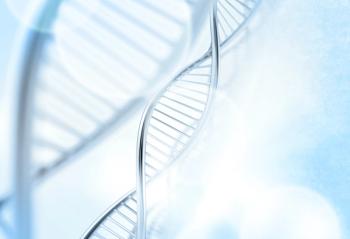
- Psychiatric Times Vol 27 No 3
- Volume 27
- Issue 3
Too Good to Be True?
Your mother was right-fish is good for you.
Your mother was right-fish is good for you.
A study in the February issue of
G. Paul Amminger, MD, and colleagues1 conducted a randomized, double-blind placebo-controlled 12-week study of the effects of ω-3 PUFAs. A total of 256 individuals aged 13 to 25 years were assessed for eligibility, and 81 were enrolled.
Participants were randomized to either active treatment (n = 41) or placebo (n = 40). After randomization, participants were assessed weekly for 4 weeks, followed by assessments at 8 and 12 weeks, and at 6 and 12 months. Active treatment consisted of a daily dose of 4 gelatin capsules of concentrated marine fish oil with 700 mg of eicosapentaenoic acid, 480 mg of docosahexaenoic acid, and 7.6 mg of mixed tocopherol (vitamin E). Coconut oil was used for the placebo because it has no impact on ω-3 fatty acid metabolism. The primary efficacy end point was conversion to psychotic disorder.
The 12-week intervention with ω-3 significantly reduced the transition rate to psychosis and led to significant symptomatic and functional improvements during the entire follow-up period. At 12 months, psychotic onset was seen in 2 (4.9%) participants in the active-treatment group compared with 11 (27.5%) in the placebo group (P = .007). The active-treatment group had significantly lower Positive and Negative Syndrome Scale (PANSS) scores at 12 weeks, 6 months, and 12 months than controls (all P < .05). In addition, there was a significant increase of ω-3 levels relative to v-6 in the active-treatment group compared with the placebo group (P < .001).
The ω-3 PUFAs have been shown to be free of clinically relevant adverse effects and are safe, even when used in relatively high doses.2 Adverse effects are limited to GI symptoms such as nausea, loose stools, and fishy eructation. The usual adverse effects seen with antipsychotic treatment-including metabolic changes, sexual dysfunction, and weight gain-are not seen with the ω-3 PUFAs.3,4
During the study’s 12-month posttreatment follow-up period, only 1 participant who had received ω-3 treatment transitioned to psychosis. Prodromal symptoms of the participants in the ω-3 group did not worsen after the treatment was stopped, nor did their functioning deteriorate.
Group differences were maintained after the treatment ended, which has not been the case with antipsychotic trials. The continued effect may be because of the neuroprotection afforded by the antiapoptotic and antioxidant properties of ω-3 PUFAs.5,6 Eicosapentaenoic acid has been found to increase glutathione in the temporal lobes of first-episode psychosis patients, thereby protecting the neurons from oxidative stress.7
Cautionary notes
Because of design limitations, the findings from the study should be viewed carefully. The study was undertaken in the context of specific risk criteria, within a specialized setting, and in a relatively modest sample size. All of these factors may make generalizing the findings to other groups and settings impossible. Furthermore, the efficacy of ω-3 PUFAs beyond 12 months remains unclear-the transition to psychosis may have been delayed rather than prevented.
Overall, however, the results of the study are positive and are a first step in showing that ω-3 PUFAs offer a viable prevention and treatment strategy with a good safety profile in young people who are at high risk for developing a psychotic disorder.
Is the finding that treatment with a natural substance may prevent or delay the onset of a psychotic disorder too good to be true? The authors recommend further studies in other settings and with larger populations to find out.
References:
References
1.
Amminger GP, Schäfer MR, Papageorgiou K, et al. Long-chain omega-3 fatty acids for indicated prevention of psychotic disorders. Arch Gen Psychiatry. 2010;67:146-154.
2.
Freeman MP, Hibbeln JR, Wisner KL, et al. Omega-3 fatty acids: evidence basis for treatment and future research in psychiatry.
J Clin Psychiatry.
2006;67:1954-1967.
3.
Morrison AP, French P, Walford L, et al. Cognitive therapy for the prevention of psychosis in people at ultra-high risk: randomised controlled trial.
Br J Psychiatry
. 2004;185:291-297.
4.
McGorry PD, Yung AR, Bechdolf A, Amminger P. Back to the future: predicting and reshaping the course of psychotic disorder.
Arch Gen Psychiatry.
2008;65:25-27.
5.
Mukherjee PK, Marcheselli VL, Barreiro S, et al. Neurotrophins enhance retinal pigment epithelial cell survival through neuroprotectin D1 signaling.
Proc Natl Acad Sci U S A.
2007;104:13152-13157.
6.
Farooqui AA, Ong WY, Horrocks LA, et al. Comparison of biochemical effects of statins and fish oil in brain: the battle of the titans.
Brain Res Rev.
2007;56:443-471.
7.
Berger GE, Wood SJ, Wellard RM, et al. Ethyl-eicosapentaenoic acid in first-episode psychosis: a 1H-MRS study.
Neuropsychopharmacology.
2008;33:2467-2473.
Articles in this issue
almost 16 years ago
The Genetics of Temperament-An Updatealmost 16 years ago
Auditory Hallucinations in Psychiatric Illnessalmost 16 years ago
Neuropsychiatric Effects of Traumatic Brain Injuryalmost 16 years ago
Questions About Expanded Mental Health Parity Lawalmost 16 years ago
Psychiatric Presentations of Autoimmune Encephalopathiesalmost 16 years ago
Psychiatric Symptoms Associated With Parkinson Diseasealmost 16 years ago
Tourette Syndromealmost 16 years ago
Pharmaceutical Philanthropic Shell Gamesalmost 16 years ago
First Psychiatric Patientalmost 16 years ago
“Paranoia Strikes Deep”*: MMR Vaccine and AutismNewsletter
Receive trusted psychiatric news, expert analysis, and clinical insights — subscribe today to support your practice and your patients.







